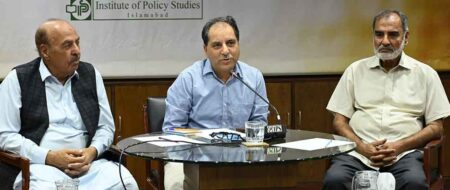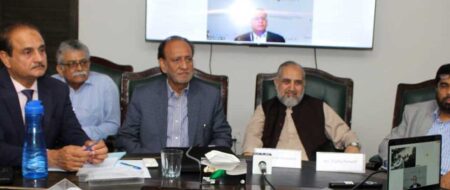Pakistan’s Power Sector: Tracking the progress of one year
Experts have emphasised the need for macro-level planning of the country’s power sector with an integrated approach to mitigate the perpetual energy crisis and secure a better future for the sector.
They were speaking at a seminar titled “Pakistan’s Power Sector: Tracking the Progress of One Year”, organised by the Institute of Policy Studies (IPS) on Saturday, June 20, 2014.
They termed the PML-N government’s energy policies mere sloganeering because of “the lack of integrated planning and a total disconnect with technicalities”.
The keynote speaker, former water and power secretary Ashfaq Mahmood, said the government’s power policies lack transparency and bypass necessary technical studies, creating difficulties for experts and professionals in the ministries.
Criticising the government’s passive attitude towards building large dams, he said if the Kalabagh Dam had been built the US dollar could not have gone beyond the value of Rs25-30. He hinted that such government’s inactions will lead to further skewing of the hydro-thermal balance in the coming years.
Mahmood said that the government’s cost-cutting attempt to switch from furnace oil to coal for thermal power generation has faced severe hurdles as only a few public sector plants are making progress in this regard, while IPPs are not going for it due to tariffs and plant shutdown losses.
The former secretary said the government has announced several coal-fired power plants without any impact assessments and necessary technical studies. He said there is no mention of any PC1 for distribution lines from the planned projects, adding that the effect of the much-boasted Neelum-Jhelum project is also limited as there is no transmission line beyond 40km to distribute the electricity being generated. He said coal-fired projects will also increase the country’s dependence on imported fuel.
“In addition, the issue of circular debt is cropping up again and within a year of the clearance of Rs480 billion circular debt there are reports that it has piled up again to the tune of around Rs400 billion,” Mahmood added. He said the federal government’s tussle with Khyber-Pakhtunkhwa and Sindh on energy issues is also taking its toll and obstructing the sector’s growth.
The speakers also slated the government’s failure to check line losses, ever-increasing power tariffs and load-shedding. They called for strict implementation of laws on power theft to tackle the energy crisis.
Former federal secretary Mirza Hamid Hasan, who chaired the session, said the government’s power policy looked like a wish-list without any concrete course of action. He advised the authorities to devise realistic policies, develop an institutional framework and build the capacity of its institutions. He recommended forming a forum of technical experts on energy that can analyse the power projects, identify shortcomings and suggest improvements.
IPS Director General Khalid Rahman said the institute will soon publish an analysis of the present government’s policies and actions vis-à-vis energy sector during the first year of its rule.
Salahuddin Rifai and Ameena Sohail also spoke.












